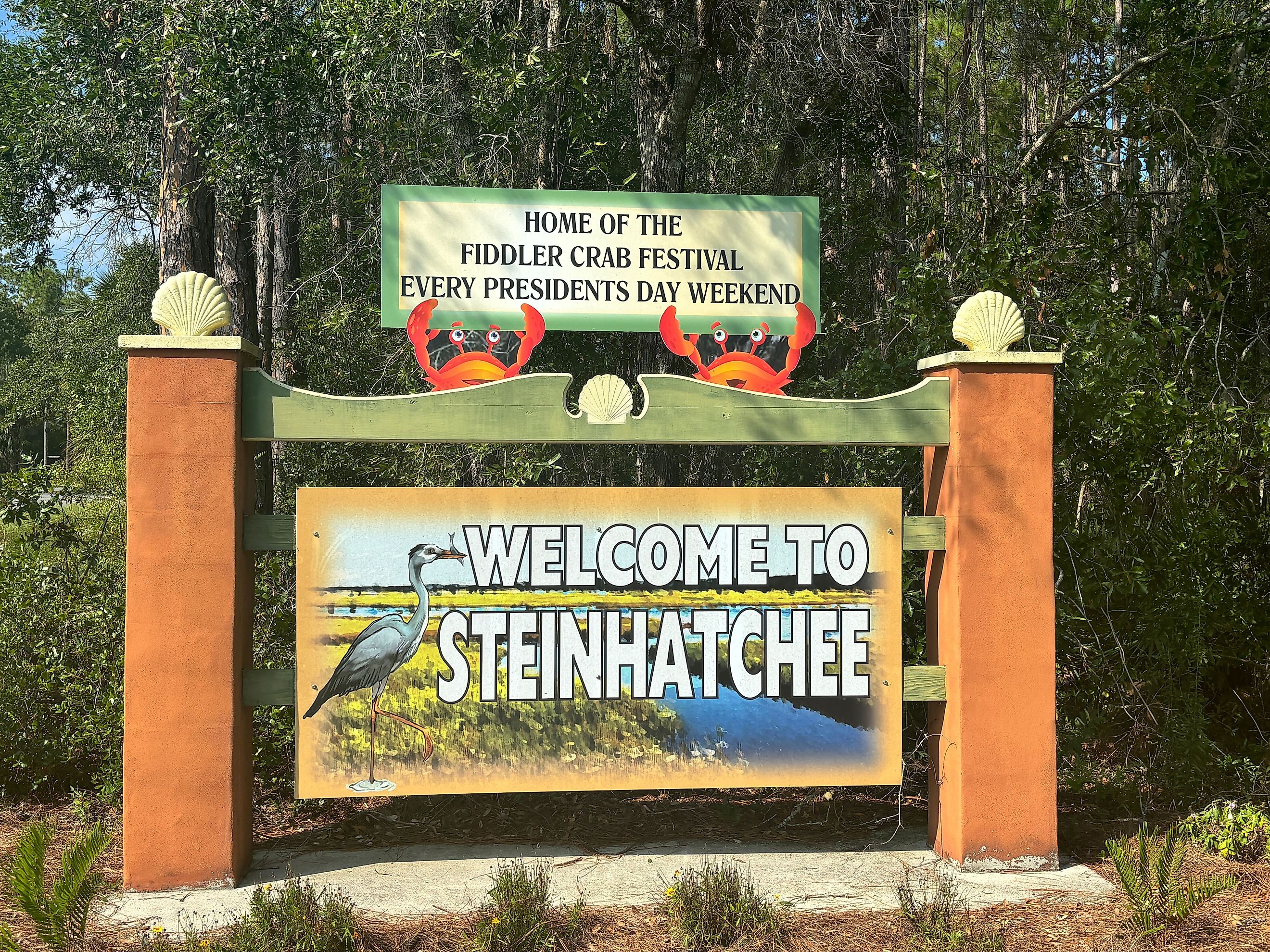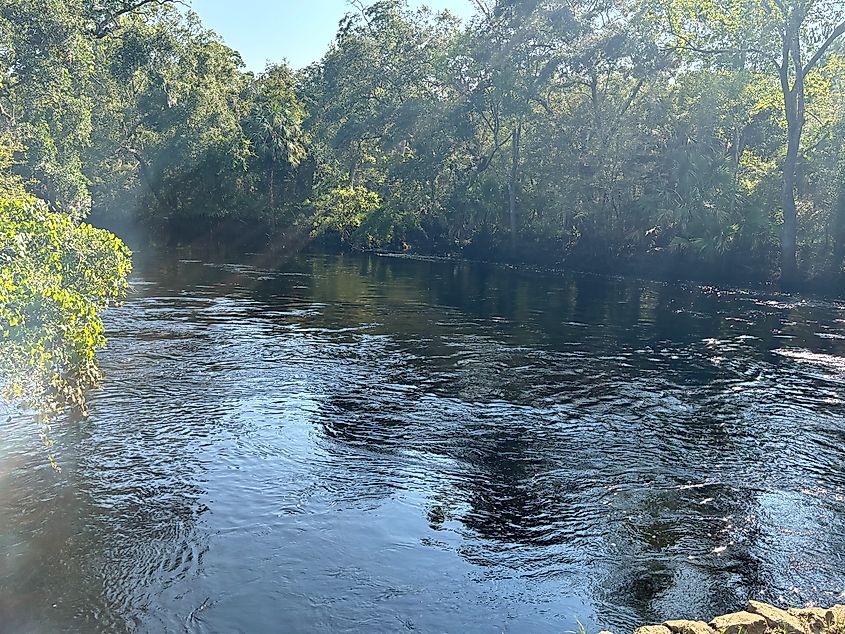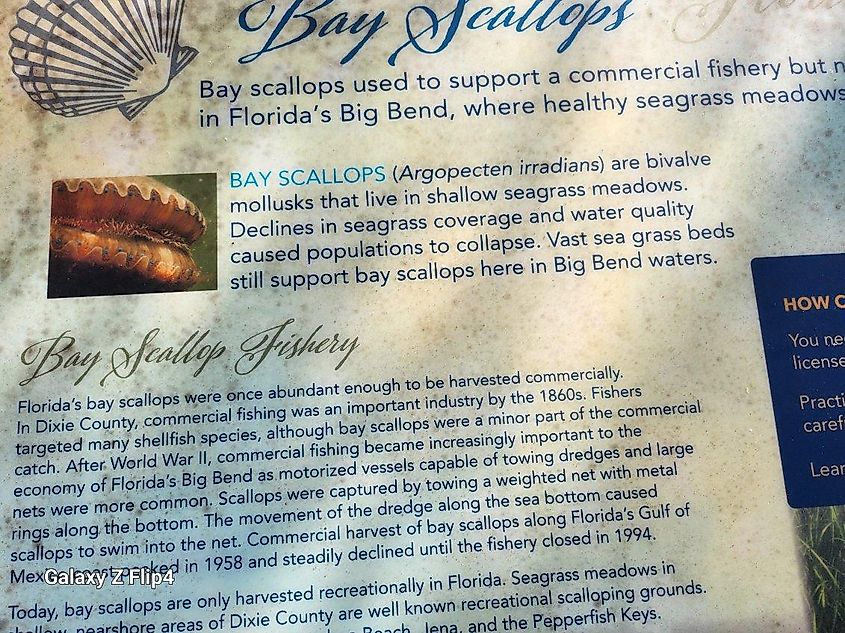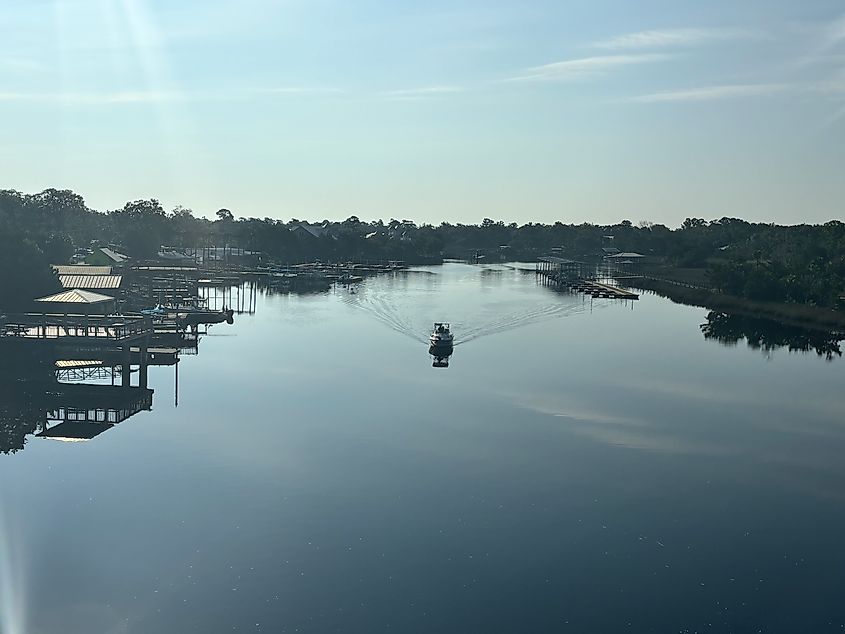
Scalloping and Offshore Adventure in Steinhatchee, Florida
Steinhatchee, Florida, is the quintessential "old" Florida small town. It is connected to the small town of Jena by a small two-lane bridge crossing the Steinhatchee River, and, collectively, the population hovers around 500 permanent residents. However, when the scallop season starts in the summertime, the roads are packed with vehicles and boats loaded with snorkeling gear, and people are trying to catch their two-pound limit for the day.
Geographically, Steinhatchee is not big enough for multiple commercial buildings, which is just how the community likes it. It is the classic small Florida town dilemma. The influx of tourists jams up the daily flow of life for the locals but bolsters the town's economy. As a Florida travel writer, I love living and adventuring in Steinhatchee, though I live "over the bridge" in Jena.
Within four or five miles from where I live, I am surrounded by wetlands, rivers, and views of the Gulf of Mexico I thought did not exist anymore. No one can blame the locals for being protective over this slice of paradise, and the widespread consensus is that it is a good thing the town does not have room for too much commercial development. Yes, I am biased.
On the plus side, visitors are welcome to come down for the three-month scalloping season from June until September. Several marinas, resorts, and tiki bars dot the slight stretch of town, where guests can find everything they need for their stay—unless they want a chain restaurant or grocery store. That is part of the allure and charm of "The Hatch. " Only a few restaurants and stores exist, but they are all top quality with lively atmospheres and friendly smiles.
Human habitation in Steinhatchee, a Native American term for "river of man," dates to prehistoric times. The town has a notable history ranging from Native Americans, pirates, and sponge divers. Andrew Jackson and Zachary Taylor crossed the Steinhatchee Falls before being elected president during the Seminole Wars. Today, the biggest draw for visitors is ample fresh and saltwater fishing and relaxation.
Steinhatchee Falls is a historic river crossing used by Native Americans and other inhabitants for thousands of years. On one of my visits, I met a friendly group of academics in scuba diving gear with a Jon boat at the boat ramp. They were setting out to find arrowheads and other archaeological artifacts, and we struck up a conversation.
The divers told me that wagon wheel ruts can still be seen during the low tide, and local lore has it that actual wagon wheels were discovered in the muck. Generals Jackson and Taylor used this significant passage during the first and second Seminole Wars to extend their campaigns into central Florida. The waters in Steinhatchee are shallow and rocky, and knowing how to navigate the hazards and having a shallow-draft boat is necessary.

I spent a long, pleasant weekend scalloping with experienced locals who understood the potentially dangerous waterways. This fun group of friends taught me much about the sport and craft of scalloping. Not having this knowledge could have caused someone to have a bad day and be towed back to shore, but we had no issues.
We set out for the Gulf of Mexico from Dalus Creek on a shallow-drafted 23-foot Bennington. This bow-rider-style boat is ideal for a group of people because it has walking room and plenty of storage lockers. Once we found a promising spot, we tossed anchor and grabbed the snorkel gear.

Snorkel gear is required for scalloping since the scalloper swims around in shallow water, looking for these delicious shellfish. Once the scalloper comes across a bed of scallops, they dive down and dig them out of the sand. As with all types of fishing, there are size limitations and regulations. It only took a couple of hours to catch the limit, and then it was time to pack up and head to the cleaning station to clean the shellfish.
Scallop sorters are a critical piece of equipment when out on the water. The sorters are either red or explicit, with a scallop-shaped cutout in the middle. Scallopers measure the size of their catch in this slot, and if it is too small, they place it back in their bed. This practice seems minute to some, but it promotes a healthy population and is a responsible form of conservation. Every store in Steinhatchee hands them out for free because the local townspeople understand the importance of this fishery for the oceans and local commerce.
On the way back, we took a scenic route and pulled into the boat ramp at Rocky Creek. Steinhatchee River has many tributaries and "fingers" of shallow water that put an exclamation point on the day after a fulfilling haul of scallops. The waterways were not crowded, and it seemed like we had the whole river to ourselves. Viewing the vast expanses of marshes and forests along the route to the boat ramp is one of the best parts of the trip. The unspoiled landscape seems pleasantly stuck in time in the best of ways.

The historic town of Steinhatchee is a magical place because of the vast expanse of unspoiled nature. Sadly, this is a rare sight in a popular vacation hub like Florida, but once you find it, you will understand the allure of such a primitive place. There is no better way to experience the town's magic than by spending a day on the water, which is why so many flock to Steinhatchee in the summertime.

Scalloping is enjoyable and even better when accomplished with friends or loved ones. Steinhatchee is considered the recreational scallop capital of the world because of the abundance of shellfish and the easy accessibility to their beds. A short boat ride can put you onto a sweet spot where the scalloper will catch their limit in just a few hours. Scalloping in Steinhatchee feels like returning to a simpler time and place when your worries wash away with the tide.











